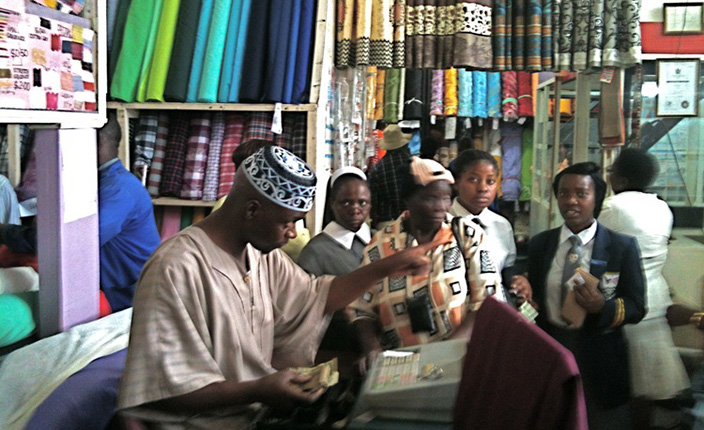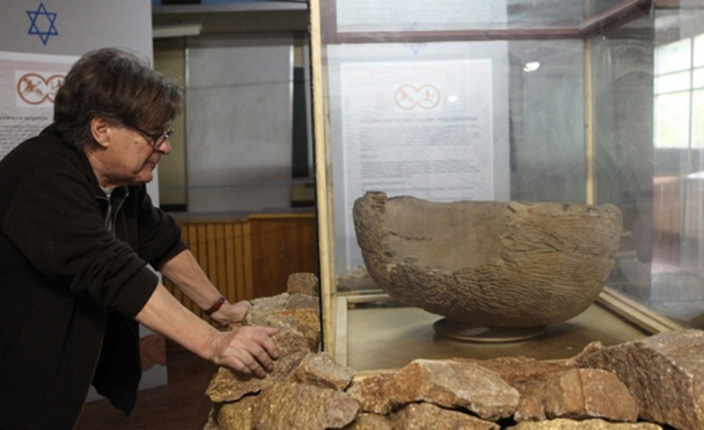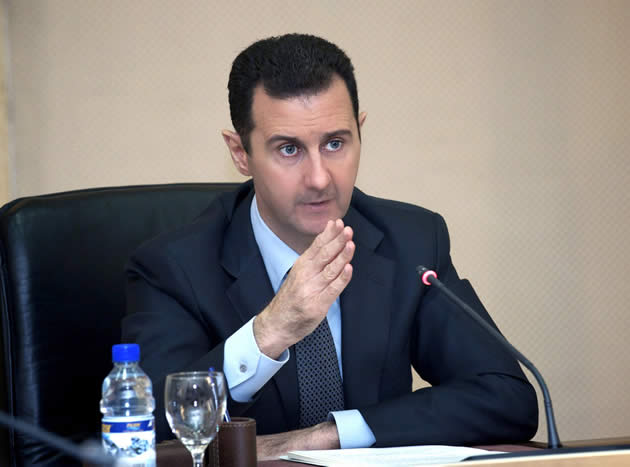Muslims court Varemba community

Musavengana Hove : Features Correspondent
Varemba, accounts of whose origin alternate between Hebrew and Arabic stock, are a peculiar Zimbabwean community with roots in the Ancient Near East. An overwhelming segment of the community, also known as the Lemba or Mwenye, is Christian but strongly identifies with its Semitic roots and maintains initiation rites such as male circumcision.Some Varemba practise Judaism; others, Islam. The former identify as the sons of Menelech, the Ethiopian heir of King Solomon and the Queen of Sheba. The Islamic connection is attributed to years of Arab trade, dating at least four centuries back in time.
However, religion among Varemba is a question of persuasion as much as it is of origins.
Varemba, indigenously connected by the “mbeva” totem, retain several allusions to the Abrahamic religions.
Legend has it that the name “Varemba” is loosely translated from “people who refuse,” owing to the “separatist” aspects of their community.
These include intermarriage, eating exclusively from own kitchenware and shunning meats which are not slaughtered by a fellow Semite. Some of the practices, particularly intermarriage have been wearing over time.
A notable incentive for the Semitic narratives was the recent discovery of the Ngoma Lungundu, a replica of the Hebrew Ark of the Covenant said to have been brought to Zimbabwe from Ethiopia.
Islamic outreach
In the past, there have been cultural exchanges between Varemba and their Semitic “brethren” from the Middle East.
The Islamic community in Zimbabwe is currently routing to bring Varemba people “back home”.
A leader of the Islamic community in Zimbabwe, Dr Eunas Hossein, recently copied a letter to all Muslim leaders in the country to be part of an engagement campaign targeting Mberengwa in the Midlands Province.
Dr Hossein urged Muslim men to attend the outreach programme which is slated for August 13 to 15, 2016.
“The ljtima will begin on Saturday 13 August after Asr Salaat and the final dua (prayer) will take place after Fajr programme on Monday August 15,” said Dr Hossein.
Mberengwa, with perhaps the most populous concentration of Varemba, is considered the Zimbabwean citadel of the Semitic community.
Varemba have a chieftainship in Mberengwa, in the Zvishavane area.

Ngoma Lungundu, a replica of the Ark of the Covenant found in Harare, ties Varemba to the Hebrew tradition (Photo — AP)
lmaam Moosa Umar, a key figure in the local Islamic community who teaches aspects of the faith at a mosque in the Harare city centre confirmed the imminent, adding that Varemba people are the indigenous Muslim community.
“The Varemba people are the indigenous Muslim people in Zimbabwe and our meeting with them should be interpreted as a re-awakening mission where we will be simply reminding each other of our duties as Muslims in Zimbabwe,”
“As Muslims, we are known for our purity, uprightness and blameless character. Our gospel is justice, proper human conduct and an equitable economic system,” said Umar with an infectious smile.
The Jewish connection
Varemba, who spread through Zimbabwe, South Africa and parts of Mozambique have heavily contested theories of origin. A few, sometimes starkly contrasted, theories seek to explain the peculiar practices of the community.
The dominant theory of origins casts Varemba people as descendants of King Solomon’s secret affair with the Queen of Sheba. Some circles of the community in Zimbabwe, particularly among the Karanga-speaking people in Masvingo and Midlands provinces, strongly identify as the “black Jews of Zimbabwe”.
Many Varemba in Zimbabwe are raised and cultured to the Solomonic account, with the similarity of some of Remba and Jewish customs often cited.
“The Remba people place the Star of David on their tombstones. Remba are discouraged from marrying non-Remba, just as Jews are discouraged from marrying non-Jews,” said Tadzoka Ndhlovu, beaming with pride for being a member of the “chosen tribe”.
Magdel le Roux, a religion writer concurred, pointing out that Varemba have a rite of sacrifice which is called the “Pesah”, which seems similar to the Jewish Pesach, rendered in English as Passover.
Gutu North MP Cde Edmore Maramwidze, who identifies as Remba said in a previous interview, Varemba are “born to Jewish men by gentile women”.
Tudor Parfitt, professor of Oriental and African Studies at University of London conducted a genetic research comparing the Y chromosomes found in the Varemba and those found in a priestly class amongst the Jews and “established a startling resemblance”.
Islamic counter-narrative
However, not all Varemba are convinced by the Solomonic theory of origins. Davison Moses Foroma, a legal practitioner whose is Remba pushes a counter-narrative.
“The prayer recited by the Varemba when slaughtering animals or birds is in the Arabic language and is of Islamic origin. This is taught in Arabic at the Varemba initiation school together with other prayers. The greeting or salutation taught at the initiation school is a Muslim greeting in Arabic.
“The most important prayer taught in the initiation school, though in an adulterated form (in terms of pronunciation), is Arabic and Islamic. The tradition of carrying knives by Varemba males who have been through the initiation school establishes an irrefutable link to Arabic tradition or culture, which today is pronounced amongst the Yemenite Arabs. Jews do not practise this tradition,” goes part of the argument by Foroma in a local publication.
Coming to Zimbabwe
In “The Karanga Indigenous Religions in Zimbabwe,” historian Tavona Shoko says Varemba arrived in what is now Zimbabwe during the time of the Rozvi empire.
“Originally the Remba had established contact with the Arab traders in Sena in the Zambezi valley and they intermarried and adopted some of the Arabic cultural traits and names.
“They practise circumcision and ritual killing (slaughter of beasts) in which members of the group can only eat meat slaughtered by one of them. They entertain marriage from within the group. They have adopted Arabic names like Hamisi, Hasani, Bakari, and Sadiki. This shows tremendous influence from a Semitic culture,” said Shoko.
A member of the community who only identified himself as Takavafira argued that Varemba may actually be Muslim because they place value on the months of June and July, the same months Muslims use as their holy month of Ramadan.
“Remba boys withstand the wintry month of June undergoing initiation under rigorous conditions while the girls also use the month to do what they call Komba,” said a source who prefers to be called Takavafira.
Komba is one of the most secretive rite in Remba tradition and the initiated are not supposed to divulge intricate details of the defining cultural exercise.
“The Komba rite is conducted in bush camps during the months of June to July in winter for two reasons. First, in winter wounds inflicted during the circumcision heal easily with very little bleeding.
“Second, the initiates are taught to endure the hardships of life, especially when they are made to wake up early in the morning, bathe in cold water, dance or perform rigorous exercises,” says Musindazi in a book titled “Komba: Girls’ Initiation Rite and Inculturation among the VaRemba of Zimbabwe”.
Varemba are known for a militant response if someone from outside the fold encroaches into their camps.
“They carry long lashes or sjamboks during the initiation exercise and if you meet them in a group during their exercise you should bow your head or else you will get the thorough beating of your life,” said a Mberengwa man called Tanaka who was “once given a strong remonstration” for being “intrusive”.
As the Islamic community in Zimbabwe launches a charm offensive, some members of the Varemba tribe are refuting claims that they are Muslim or Jewish, arguing that cultural similarities are mere coincidence rather than a question of ancestry.
“Sharing customary and cultural values with Muslims or Jews does not automatically make us their kith and kin. Varemba people are an independent and solitary cultural and religious group,” says Taruvinga Zhou who hails from Mberengwa.
Islam in Zimbabwe
The origins of Islam in Zimbabwe are located at the peak of the Great Zimbabwe when Arab and Swahili traders established trade links with the ancient African city, now a world heritage site.
“Islam was spread in Southern Africa by scrupulous Arab traders whose gospel was to spearhead community-oriented development through engaging in fair, honest, sincere, generous and transparent business ventures with the local people during pre-colonial times,” Umar told The Herald Review.
The Muslim community in Zimbabwe has made developmental inroads in Zimbabwe.
“We have Al-shifa clinic along Cameron Street offering health services at relatively low prices and our members, both internal and external, have been raising charity funds to assist anyone in Zimbabwe who cannot afford basic needs such as food and clothes,” said Umar.
Muslim parents allow their children to learn at secular schools but the religion encourages parents to send their children to faith centres such as the Islamic Cultural Institute in Ridgeview area in Harare.
“These institutions offer Islamic tutorials on etiquette, jurisprudence, hygiene, history and prayer,” said the cleric.
Islam and current affairs
Speaking on other contentious issues which threaten moral fibre such as the ferment of homosexuality, members of the Islamic community took a swipe on money-minded non-governmental organisations propagating decadence, using vocabulary bordering on President Mugabe’s castigation of the same.
“We are a religion of the morally upright and we detest any practice which is demonic and ungodly. These things are not an emanation of nature but arise from perverse experimentation,” said a member who identified himself as Sadiki.
The Islamic community in Zimbabwe is also wary of the recent global terrorism developments where an extremist coterie of the faith is disrupting peace and development.
“The barbaric and savage attack on Nice residents must be condemned by all and sundry. It must be also be made abundantly clear that a criminal case involving a group of Muslims cannot be used to condemn the whole religion,” remarked Umar with a sudden show of remorse.
The cleric also allayed fears on a global phenomenon now dubbed “Islamophobia” where other people such as United States presidential hopeful Donald Trump are calling for the banning of entry of Muslims in their country, arguing that the spread of Islamic fundamentalism is placing the world in jeopardy.
“Islam will not spread by the sword but through good character and counsel,” concluded Umar.










Comments